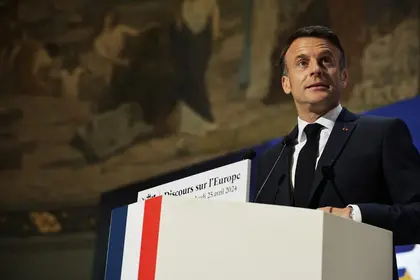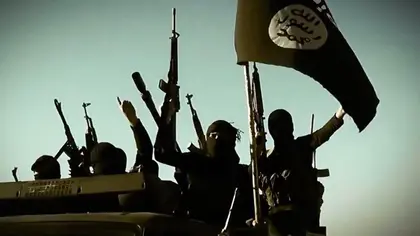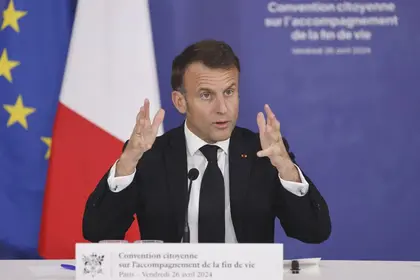In August 2021, I wrote an essay for Al-Jazeera, “The threat of ISKP in Afghanistan has been underestimated.” The tragic culmination of this prediction unfolded during the night of March 22, after an attack on a Moscow music hall killed more than 100 people, an attack conducted by the Islamic State in Khorasan Province (ISKP), otherwise known as ISIS-K, the Afghanistan affiliate of ISIS.
The Kremlin and some Russian lawmakers were quick to accuse Ukraine, but ISIS-K not only claimed responsibility for the attack, but targeting concert halls is its modus operandi, such as its parent organization ISIS’s attack on a Paris concert in November 2015.
Although foreign and Russian media will now start to pay attention to this group, ISIS-K has been terrorizing Afghans since 2015. However, its origins are much earlier, the product of the Soviet empire’s legacy in Afghanistan. When the Soviets invaded Afghanistan in 1979, little could it anticipate that it would lead to a series of events that brought violence back to Moscow in 2024.
While the Soviets were in Afghanistan in the 1980s, neighboring Pakistan was ruled by a general, Zia al-Haqq, who turned a blind eye to the formation of militant Islamist groups, who were also fighting the USSR next door. In that decade the Sunni Muslim Sipah-e-Sahaba organization formed in Pakistan, breaking away from the main Deobandi movement, an austere South Asian Islamist revivalist movement, to focus primarily on a sectarian, anti-Shia terrorist campaign at home. Another group known as Lashkar-e-Jhangvi split from this group in the 1990s, claiming its parent group had deviated from the original anti-Shia platform.

Macron Warns 'Mortal' Europe Needs Stronger Defense and to Ensure Russia's Defeat
Back in neighboring Afghanistan, the 1990s witnessed the Taliban emerging out of the chaos of the Soviet invasion. It was during that instability that al-Qaeda was also able to establish a base in Afghanistan, forming a tacit alliance with the Taliban.
Finally, neighboring Tajikistan witnessed a civil war between the state and an Islamist insurgency, which ended in 1996, in which Russia intervened, ultimately destroying its economy.
It was exactly a decade ago, in 2014, when ISIS was formed by defectors from al-Qaeda who then attacked their parent organization and its Syrian affiliate, Jabhat al-Nusra. In 2015, ISIS-K was formed primarily by defectors from the Taliban of Afghanistan, who then went on to attack their mother organization. Eventually defectors from the Pakistani Lashkar-e-Jhangvi group would also join ISIS-K in Afghanistan, attracted by even its more brutal anti-Shia campaign.
In both cases, the defectors considered their former organizations not extreme enough or not committed enough to attack Shia Muslims, whom they considered deviants. Yet ISIS-K was able to do so, perpetrating its most brazen attack, a May 2020 massacre at a maternity hospital in a majority Shia Muslim district of Kabul, which killed more than 20 people, including newborn babies and mothers. A year later, in May 2021, it launched an attack at a school in the same district, killing at least 90 people, most of them schoolgirls. That it would conduct such a massacre in a Moscow suburb in 2024 is no surprise given its past.
By August 2021, ISIS-K began to gear up for a fight with the Taliban as it consolidated control over Kabul as the US withdrew. While ISIS-K numbers were close to 2,000, it could still challenge the estimated 60,000-strong Taliban, with the latter forces spread thin across Afghanistan. It did so in September 2022, when ISIS-K claimed responsibility for a suicide bombing of the Russian embassy in Kabul. Then in March of this year, the terrorist group brough their campaign into Russia itself. Russian security forces fought ISIS-K terrorists in the Ingushetia region and thwarted an ISIS-K attempted to attack a synagogue in Moscow.
In another tragic prediction in the month of March, I and a Tajik academic colleague of mine organized a lecture in the US on a “Transnational History of Ukraine,” which concluded with vulnerable Tajik men in Russia with grievances, which ISIS-K exploits. Due to high unemployment and little prospects in Tajikistan since its civil war in 1996, single men from this nation have moved to Russia, sending remittances back to their relatives as well as saving enough money for a wedding.
Yet the moment Tajik men arrive in Russia’s airport some are enlisted on the spot and taken to frontlines in Ukraine. Other Tajiks have Russian citizenship or work permits, but are pressured by authorities that if they do not enlist they will either lose their Russian citizenship or face deportation.
Desperate communities like these make for an ideal demographic for ISIS-K to prey upon, as the terrorist group has an entire faction recruited from this nationality.
The attacks in Moscow shed light on the liminality of Tajiks in Russia and how they provided a vulnerable demographic that both the Russian state and Islamic state could mobilize for violence.
Thus, in this long and complicated history, ISIS-K ultimately emerged due to the confluence of instability in three neighboring states: Tajikistan, Afghanistan, and Pakistan. These three states were destabilized by the emergence of the Taliban, al-Qaeda, and ISIS-K in Afghanistan, which trace their origins back to an oft-ignored inflection point: when Afghanistan emerged as a zone of insecurity following the 1979 Soviet invasion.
The views expressed in this opinion article are the author’s and not necessarily those of Kyiv Post.
You can also highlight the text and press Ctrl + Enter






Comments (2)
The saying you reap what you sow comes to mind.
Its near impossible to not want vengeance when a psychotic thug or their mindless idiot minions murder your innocent loved one. Inevitably those that harm innocents incur not only the wraith of their loved ones, but decent folks laying witness. Right now putins regime has deservedly earned the wraith of all those impacted and globally witnessing by his crimes against humanity.
Admittedly very few of us come from nations without similar idiot leaders once at the helm. Even if we were not yet born, or had tried to stop the malfeasant actions of that leader, the crimes they initiated are now saddled on the nation they represented.
The moral of the story is wars of aggression to steal from innocent neighbour are always wrong. But the response has to be very surgical in who you take out and what you target in your defence. The insultingly termed 'collateral damage" a despot leader is unconcerned with generates long term consequence. Where innocents are harmed hate festers. The west has earned its fair share of international distain...as has the east, north and south. Humans should all do better.
Ukraine's surgical defensive strikes against russia's tools of destruction, put putler's regimes' intentional targeting of civilians to absolute shame. I applaud Ukraines efforts to better avoid innocent civilian casualties. It's a near impossible task in a war, but at least they try.
To be fair, the West also encouraged Islamist groups, and they have ended up biting everybody on the backside.